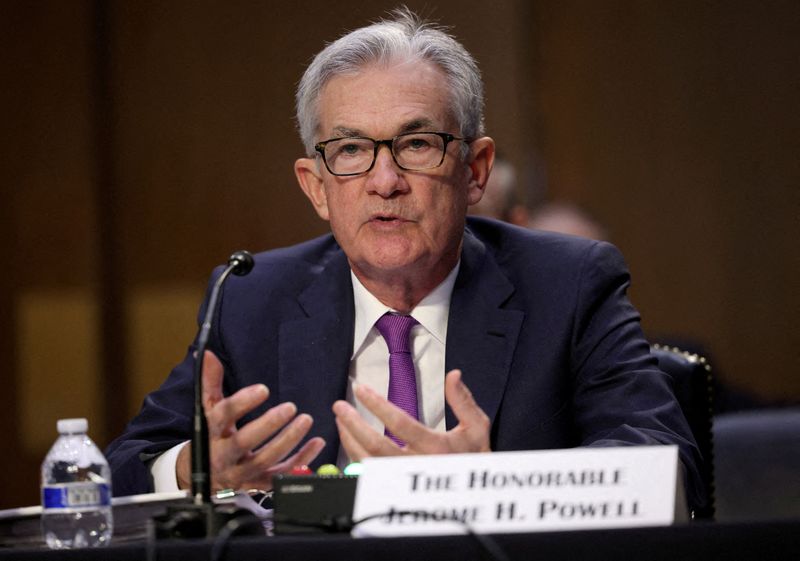NEW YORK (Reuters) - Federal Reserve officials will likely move sooner and faster when reducing the central bank's nearly $9 trillion balance sheet than it has during previous tightening cycles, but no final decisions have been made, Fed Chair Jerome Powell said Tuesday.
"The economy is in a completely different place than it was when we ended asset purchases the last time," Powell said during a Senate confirmation hearing. "The period of time between stopping purchases and beginning runoff will be shorter, and also the balance sheet is much bigger so the runoff can be faster."
Powell noted that policymakers are still debating approaches, and said it could sometimes take two, three or four meetings for them to make such decisions.
STORY:
MARKET REACTION:
STOCKS: The S&P 500 initially extended a loss then turned 0.47% higher
BONDS: The yield on the 10-year Treasury note was unchanged from before the testimony at 1.7675%. The 2-year note yield slipped to 0.9187%.
DOLLAR: The US dollar index extended slightly lower to show a loss of 0.23%
COMMENTS:
LOU BRIEN, MARKET STRATEGIST, DRW TRADING, CHICAGO
“Today I thought that he was more moderate than the general tone of the minutes -- and I think that’s why you’re seeing the dollar a little weaker and the stocks up near their highs -- such as we could start unwinding the balance sheet later in 2022, which was certainly less than some of the more -- in particular Bullard -- some of the more hawkish comments that we’ve seen from the Fed. So, I thought that he moderated things a little bit and went along with the idea that there’s more discussions to be had. And that certainly nothing’s happening at the meeting in a few weeks from now, except for more discussions. So, I would say that if anything he moderated the sentiment that people took from the minutes.”
ART HOGAN, CHIEF MARKET STRATEGIST, NATIONAL SECURITIES, NEW YORK
"The reaction we're getting today is a reflection of things that we already know.
"We're coming into this particular commentary with a market that's pre disposed to likely three increases in rates and that the Fed is actually contemplating quantitative tightening.
So all of that is baked in over the course of the last month, it is less of a surprise and that's where the market's heading, in taking this as less of a negative."
KARL SCHAMOTTA, DIRECTOR OF GLOBAL PRODUCT AND MARKET STRATEGY, CAMBRIDGE GLOBAL PAYMENTS, TORONTO
"Powell defied the hawkish commentary of others on the Fed’s rate-setting committee, suggesting that a quantitative tightening decision will come in the next two to four meetings, with bonds allowed to roll off in an organic manner - as opposed to actively selling securities into the market. This is lifting global risk appetite and spurring flows into yield-sensitive currencies like the Canadian dollar."
"Of course, although Powell may be applying the defibrillator to the “reflation trade”, it’s still dead. Market participants will continue to reckon with the prospect of tighter policy and more expensive money in the weeks and months ahead."
PAUL TUDOR JONES, FOUNDER AND CHIEF INVESTMENT OFFICER, TUDOR INVESTMENT CORP, ON CNBC

“Clearly all the inflation trades of the pandemic are going to be challenged right now,” Jones said Tuesday on CNBC’s “Squawk Box.” “I think it’s going to be tough sledding for the inflation trades of the pandemic going forward... Things that performed the best since March 2020 are probably going to perform the worst as we go through this tightening cycle.”
“The real trick here would be, can the Fed unwind what many consider a financial bubble without there being huge negative economic consequences. We’ll watch and see.”